About the specialty of Oral Hygiene
Oral hygiene is a fundamental specialty in dentistry. Responsible for the diagnosis, prevention and treatment of oral diseases, it is also crucial for the maintenance of treatments carried out in other specialties, which require proper dental cleaning through scaling.
The average oral hygiene appointment at MALO CLINIC lasts 1 hour. Our team, exclusively trained in oral hygiene, will carry out a thorough examination of your teeth and gums to assess your oral health. They will then use specialized equipment to remove any build-up of plaque and tartar from your teeth and along the gum line. This process helps prevent the development of cavities and gum disease.
We use the latest GBT protocol - Guided Biofilm Therapy - which provides a minimally invasive and painless experience, guaranteeing the removal of plaque, tartar and stains from the teeth. After an examination and diagnosis of the oral
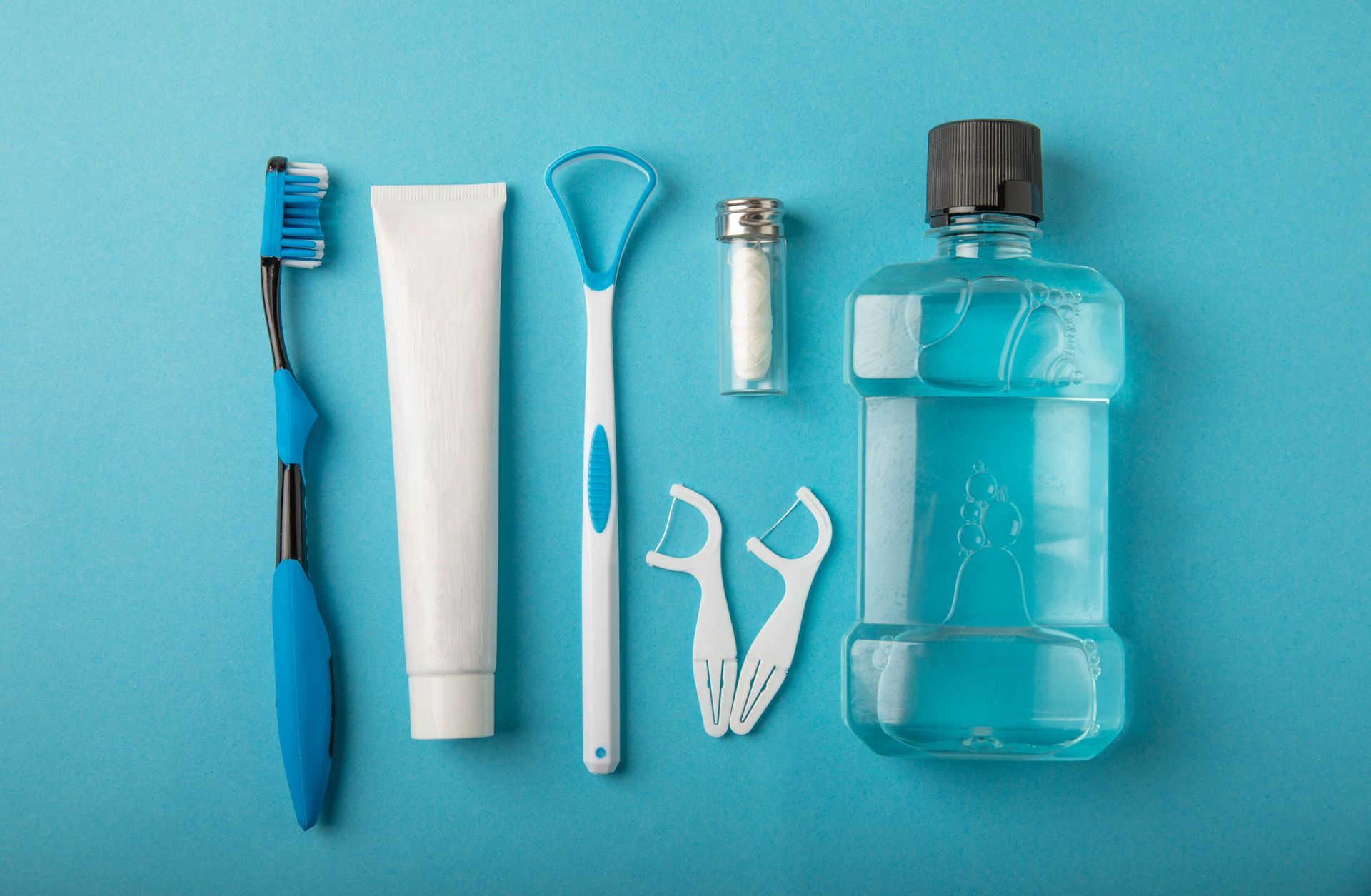
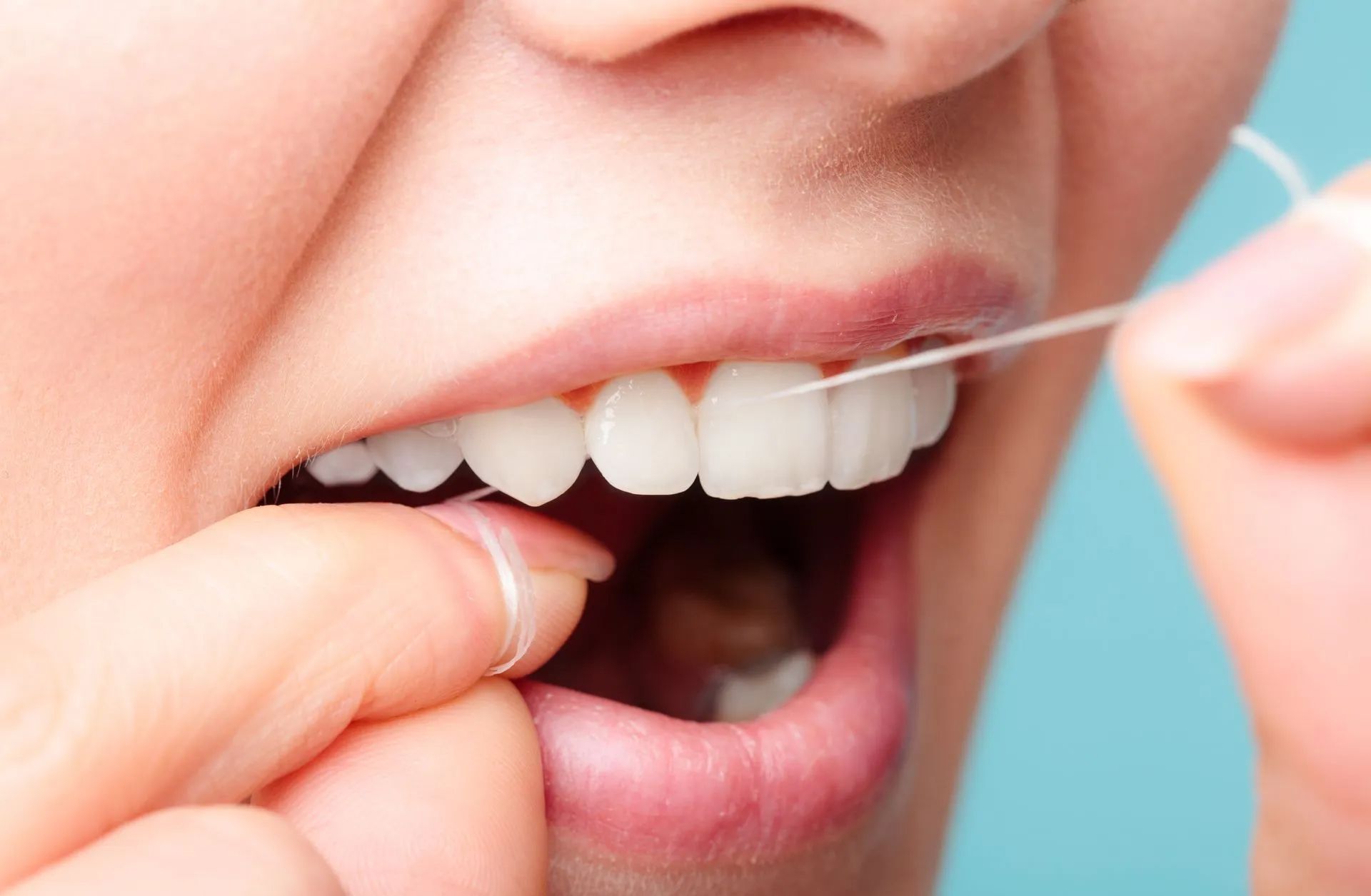
cavity, which includes an assessment of the teeth, gums, bones and tissues, an organic dye is applied to the teeth that exposes the biofilm - i.e. the bacteria that settle in the oral cavity - and allows the oral hygienist to check which areas need more attention from the patient in their daily oral hygiene. Then, using Airflow technology, the biofilm and stains on the teeth are removed using a gentle jet of air and heated water. Since the entire procedure is carried out with warmer water, the patient feels no pain or discomfort. At the end of this process, the remaining tartar is also removed gently and painlessly using heated water, providing greater comfort, especially for patients with high tooth sensitivity.
MALO CLINIC's oral hygiene team also has the latest digital X-rays, which are used whenever it is necessary to confirm a diagnosis, especially with regard to caries lesions.
Benefits of Oral Hygiene
Preventing threats to oral and general health
The symptoms of a lack of routine oral hygiene can have an impact on overall health and quality of life. There are other systemic problems that can arise or be aggravated by a lack of oral hygiene care, such as: diabetes, lung problems or heart problems.
Oral Cancer Screening
Screening to identify signs and symptoms associated with oral cancer, such as white or reddish patches, more or less rigid masses, sores or canker sores that don't heal.
Treatment maintenance
All the preventive and therapeutic procedures carried out during these appointments contribute to the longevity of previous treatments such as crowns, bridges, restorations, orthodontic appliances and devitalizations.
Long-lasting smiles
Oral hygiene consultations make it possible to prolong a healthy smile by preventing the appearance of pathologies such as gingivitis or periodontitis that can compromise the function and aesthetics of the smile.
Pathology Treatment

Bacterial Plaque
When not removed regularly, plaque is one of the main causes of tooth decay and periodontal disease (gingivitis and periodontitis). It can also contribute to bad breath, as the bacteria present in plaque release compounds that cause an unpleasant odor.

Tartar
Tartar (which consists of mineralized plaque) creates an uneven surface on the teeth where plaque can accumulate more easily, increasing the risk of periodontal disease (gum disease).

Stains on the teeth
When teeth show stains or changes in color, this can affect the aesthetics of the smile. These stains can be extrinsic or intrinsic, vary in color and intensity and can be caused by a variety of factors. Oral hygiene treats surface stains such as those caused by tobacco, coffee, tea and wine.
Clinical Cases
Scaling
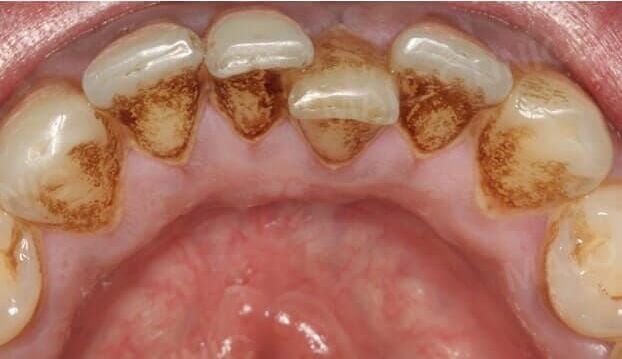
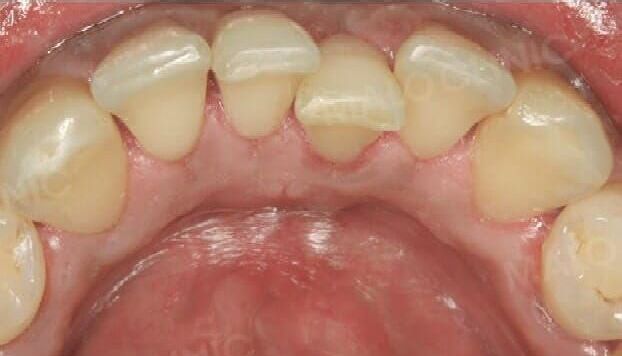
Dental Polish

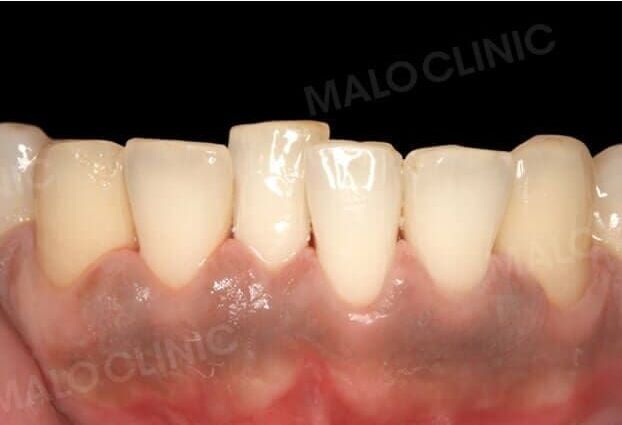
Our Clinical Team is here to help you!
Clinical Team

Ana Marques
Oral Hygienist
C-031319084/ACSS
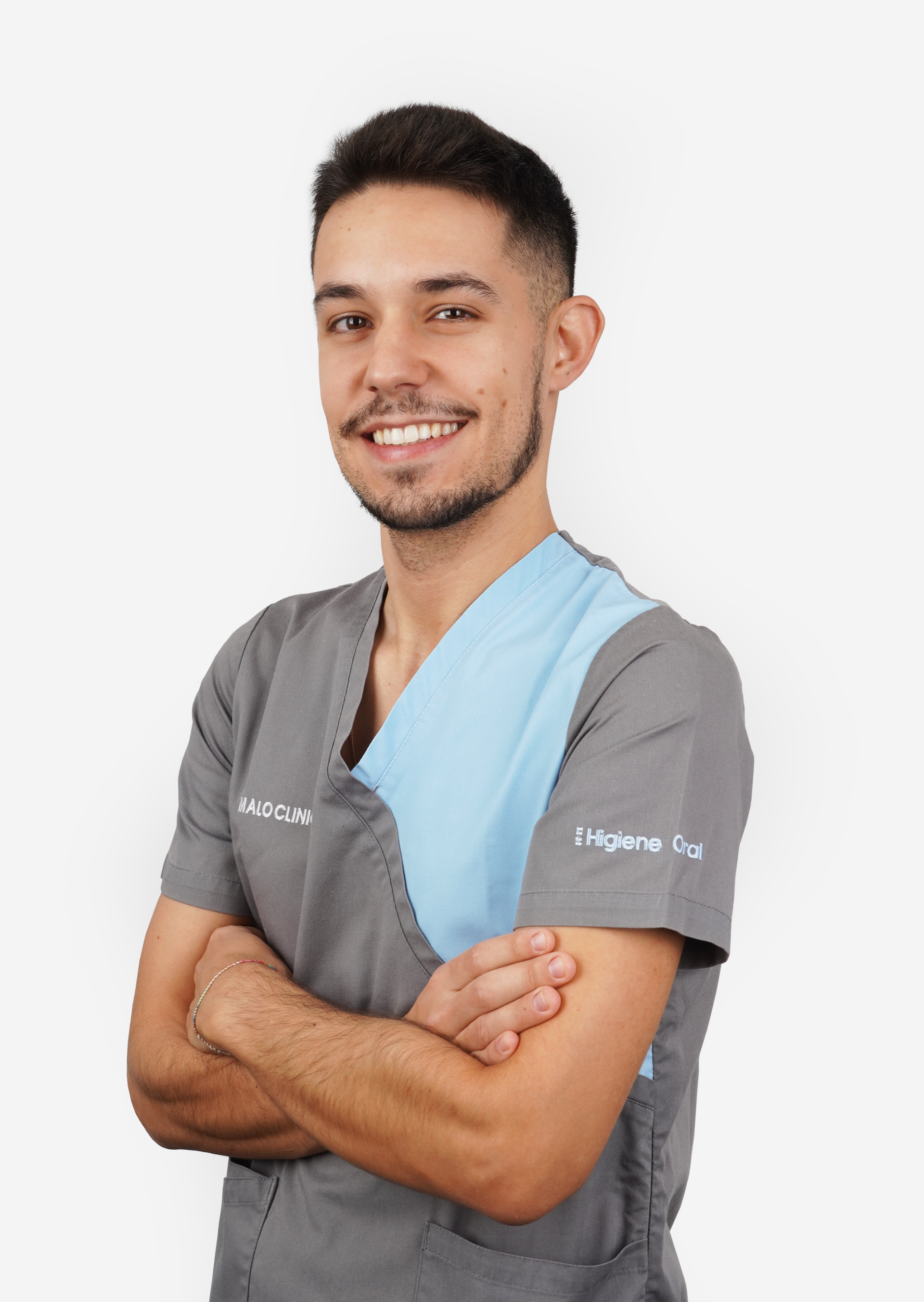
Gonçalo Heitor
Oral Hygienist
C-069652082/ACSS
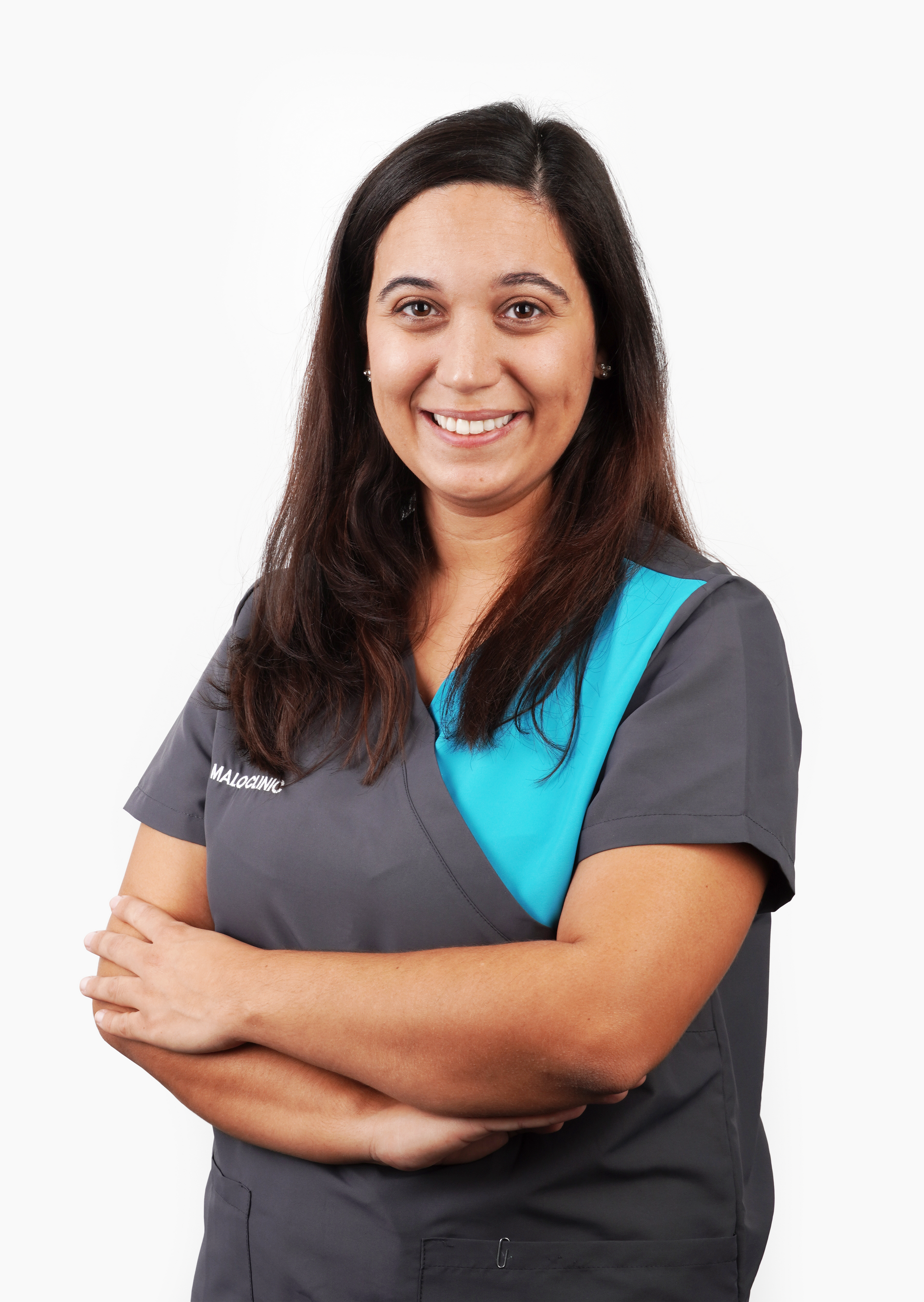
Daniela Rodrigues
Oral Hygienist
C-045618089/ACSS
Ana Marques
Oral Hygienist
C-031319084/ACSS
Gonçalo Heitor
Oral Hygienist
C-069652082/ACSS
FAQ's
-
1. I have implants, should I have oral hygiene appointments?
At MALO CLINIC, maintenance plays a fundamental role in the implant rehabilitation protocol. At regular implant maintenance appointments, all implant-supported structures are removed, whether they are single crowns, bridges or total fixed prostheses on implants. The stability of the implants is then assessed, using radiological examinations if necessary to certify their stability, and mechanical and/or manual scaling is carried out, as well as polishing of the structures, which are placed again at the end of the appointment.
-
2. What care should be part of my oral hygiene routine?
To ensure a good oral hygiene routine, there are certain precautions that must be taken:
Brush your teeth at least twice a day
This is a fundamental process for eliminating plaque that accumulates on the surface of the teeth throughout the day. Brushing your teeth reduces the likelihood of cavities and other dental complications;
Flossing
Although often overlooked, using dental floss when brushing your teeth is essential to ensure a careful oral hygiene routine, as it removes plaque and debris accumulated in the tooth spaces;
Maintain a healthy and balanced diet
Everything we eat has an impact on our oral hygiene. In this case, there are some that have a more negative impact, namely foods that are very acidic or rich in sugars, as they promote erosion of the tooth enamel, leaving the teeth more exposed to dental complications such as caries;
Visit the dentist/oral hygienist regularly
Even if you take all the precautions mentioned above, it is important to visit your dentist or oral hygienist regularly to check the condition of your oral cavity. These should be carried out once every 6 months, or whenever you feel discomfort.
-
3. Do hard brushes help clean teeth better?
Hard brushes do not brush your teeth better, nor is it necessary to apply a lot of friction or pressure when brushing your teeth.
-
4. Will I feel pain when my teeth are cleaned?
No. Our offices are equipped with the latest technology (airflow) which minimizes discomfort, even if you suffer from tooth sensitivity.
Agreements and partnerships




Our Clinical Team is here to help you!
About Us
Dental Specialities
@ 2023 All rights reserved - Malo Clinic SA | NIF 503411434 | ERS N.º12920



